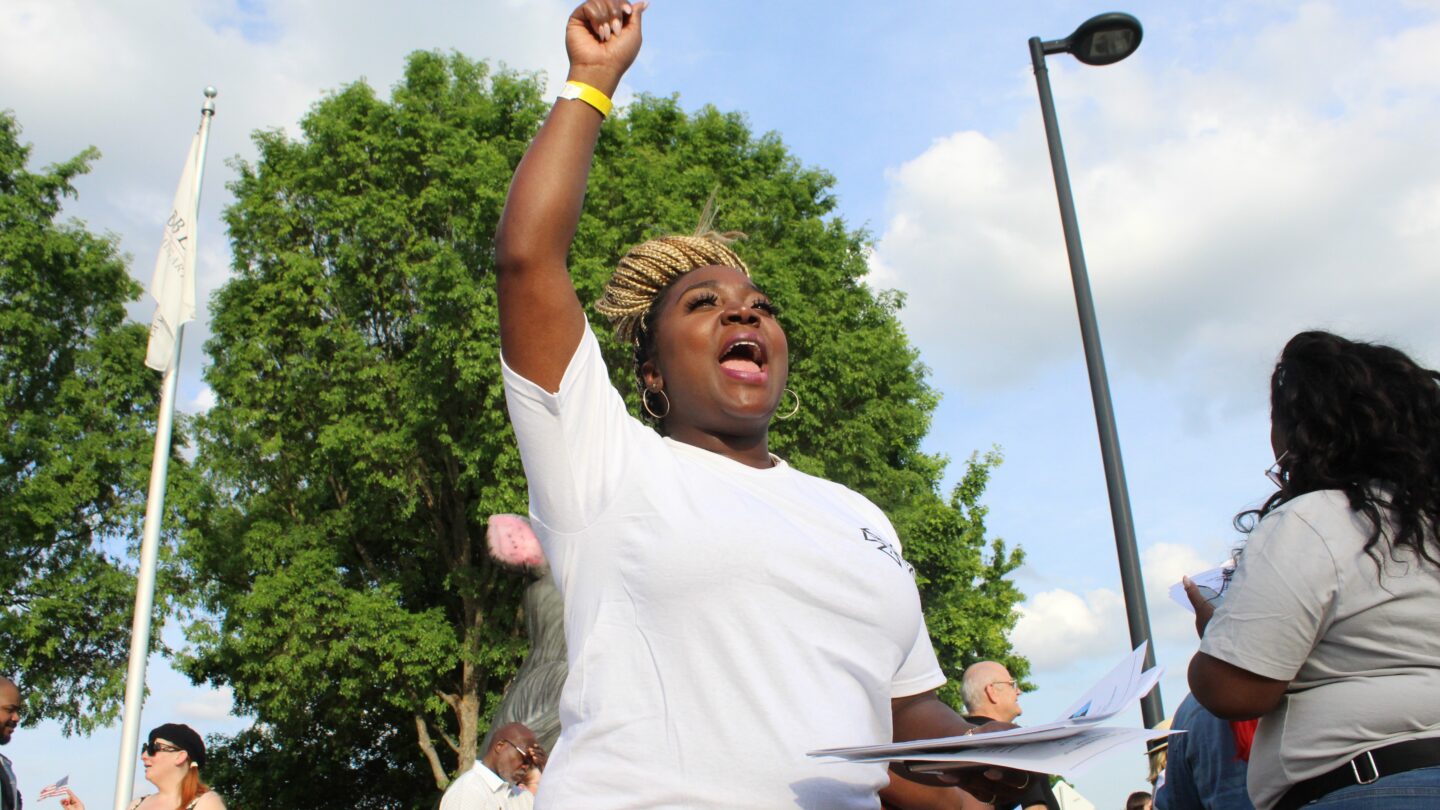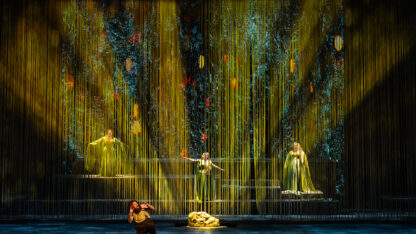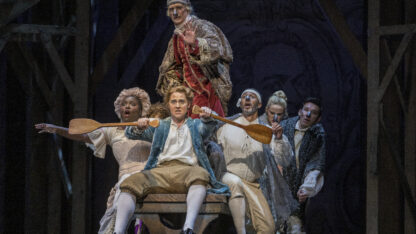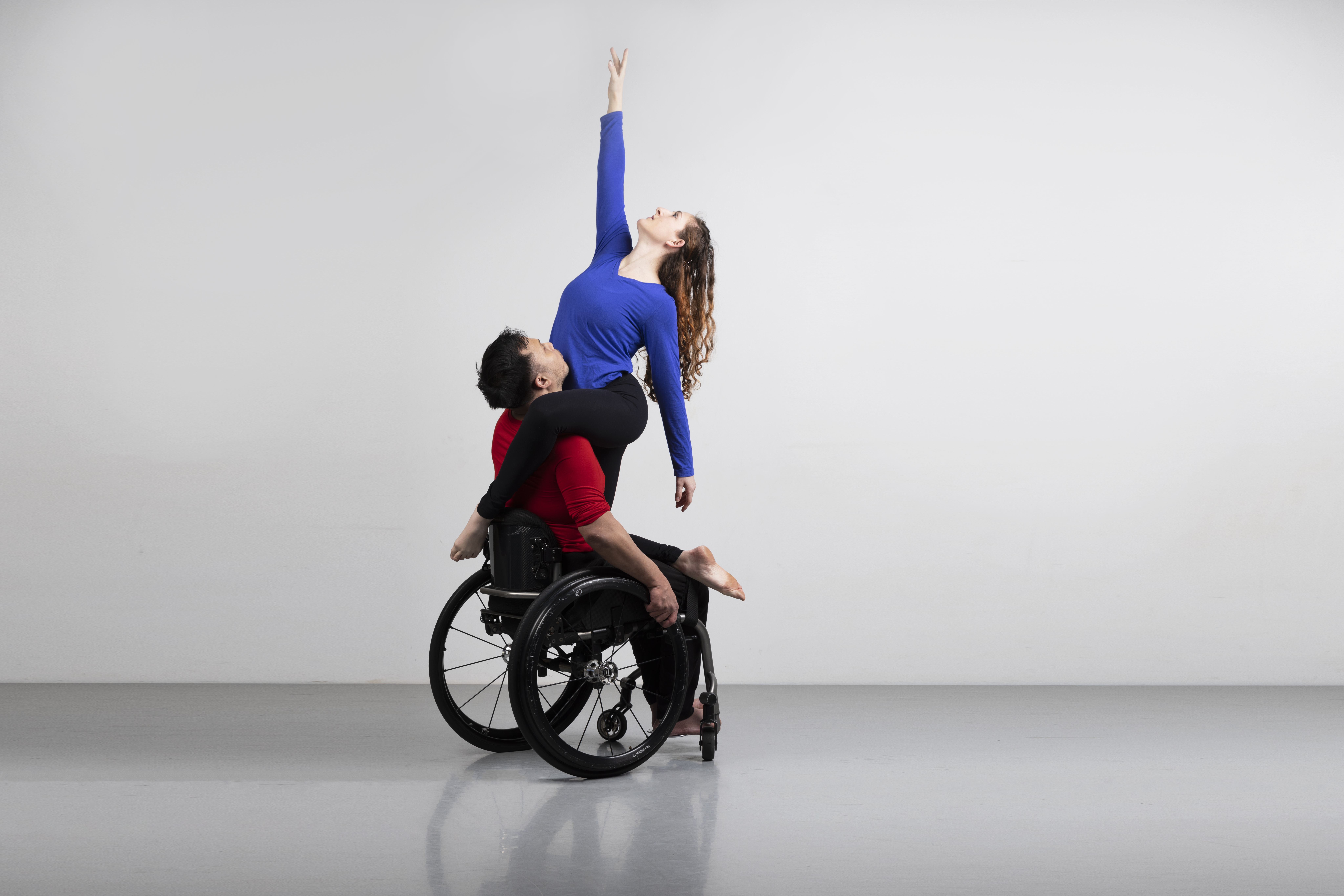The Atlanta Opera is in a union dispute, not with its performers, but with the people who fix their hair and makeup. Those artists want to be recognized as union members.
And as the two sides await a legal ruling in the case, there was a demonstration outside Saturday’s performance at the Cobb Energy Performing Arts Centre.
As opera-goers made their way to see “The (R)evolution of Steve Jobs,” they passed by a group of IATSE Local 798 members, passing out leaflets. That’s the International Alliance of Theatrical Stage Employees.
“People come to see something visual, also something audible, of course — it’s the opera, it’s wonderful, but there’s a reason they come in person, they want to see it,” said Jennifer Bennett. She’s a member of IATSE Local 798 who works in TV and film, but was out in support of her fellow union members.
Standing next to Bennett and calling out to drivers passing by was Brie Hall. She has done hair and makeup for the Atlanta Opera since 2016. As she worked more performances, Hall says she began to ask questions, like why does the opera recognize and pay stagehands and musicians as union members, but not hair and makeup artists?
Then, the COVID-19 pandemic hit, and non-union workers were working with no health benefits.
“As hair and makeup artists, we’re putting ourselves at the greatest risk, because we can’t do our jobs maintaining six feet distance,” said Hall.
So last year, Hall and the hair and makeup artists voted to unionize, hoping to negotiate a contract with better pay and benefits.
But the opera refused to recognize the artists as union members. The organization provided a written statement to WABE, explaining its stance.
“The hair, wig and makeup professionals with which we work are entrepreneurs who are free to contract with other organizations as they wish, retaining ownership of the tools of their trade and the associated benefits of running an independent small business,” the statement read.
The head of the union, Michael Loeb, doesn’t buy the argument.
“It’s troubling and puzzling that they won’t deal with us for this group of hair and makeup people who are predominately women and many of them women of color,” said Loeb.
The National Labor Relations Board covering the Atlanta region sided with the union. But the opera appealed, leaving artists like Hall on the sidewalk, while the show goes on inside.
“People know now, and we’re getting the word out and with the education and hopefully we can affect change,” said Hall. “Because if you’re misclassified, it’s not fun.”
It’s not clear when the appeal with be heard. The opera, meanwhile, continues using independent contract labor for hair and makeup.
“We continue to firmly believe these professionals who work with us for only two to six weeks a year are independent contractors, just as we believe these professionals are integral to our artistic ecosystem,” the Atlanta Opera’s statement continued. “We are currently following, and will continue to follow, the proper process to determine whether Union representation is legally appropriate.”









